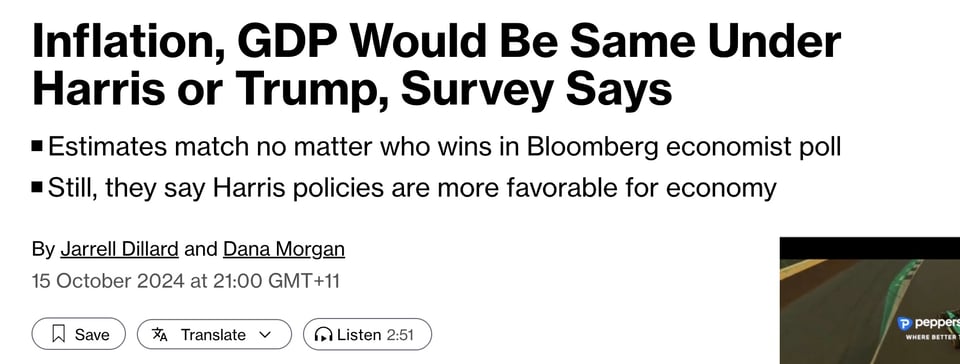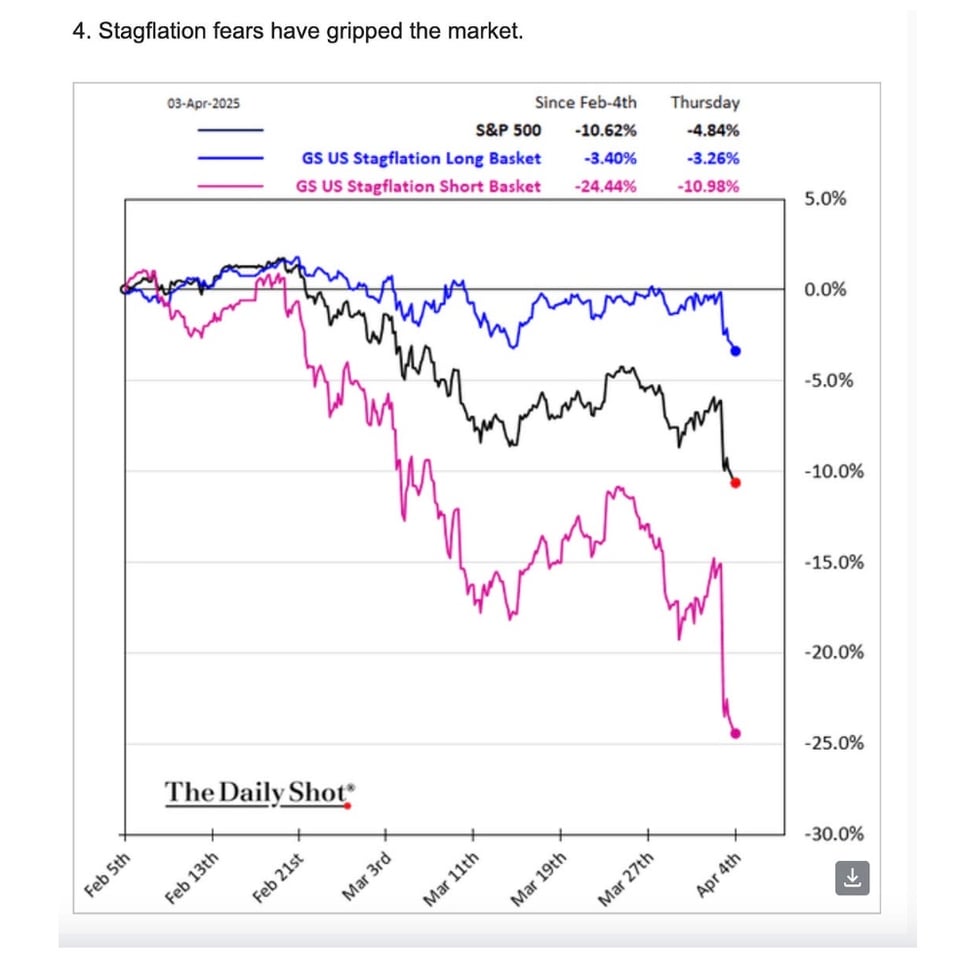Tariffs, around the world
The Trump tariffs were announced, and perhaps the numbers being based on a daft formula reluctantly suggested by four out of four AI chatbots is a welcome distraction from random people being sent to a hellish El Salvadorean prison, or cuts to globally-significant research programs.
While Tim is busy advising Brazilian ministries, here are a few links from me about the failure of imagination of Mr Market; the absurdity of skyhigh tariffs on countries like Sri Lanka and Bangladesh; the shameful neglect of countries in humanitarian crises; and the possibilities of Indian-African collaborations.
Another distraction, perhaps: the irony of the world’s biggest banks ‘preparing’ for temperatures that will mean the end of capitalism as we know it.
Despite Tim travelling and me being sick and in an unfavourable time zone, we both managed to join an excellent discussion earlier this week about what space there is for Global South countries in China's green industrial policy landscape - we’ll publish more about that soon. In the meantime please email here (Kate, Tim), follow us on Bluesky (Kate, Tim), and join our Discord.
-Kate
Sanewashing, or the delusion of insufficiently online market strategists


The market reaction demonstrates that markets strategists and economists were unable to fathom the sheer lunacy in store, despite the countless signs and warnings that this would not be a continuation of the first Trump administration, but a whole new regime.
Maybe these markets guys are just not online enough. Here’s a “skeet” we quoted a few weeks ago that seems even more relevant now:
You will sound insane saying they make the choices they make because "Europeans are soy boy apostates, whereas Russia is a nation of Based civilization fighters", but if not their exact worldview, at a minimum it is the worldview of people they spend a lot of time reading from and talking to
— zatapatique (@zatapatique.bsky.social) 4 March 2025 at 21:06
Perhaps Wall St analysts need to get their teenaged kids to help them out, again?
Until they figure that out, here is some more on the prevailing economic mood: uncertainty: 1) a deep dive on tariffs and US renewable energy from Advait Arun, and 2) a shorter piece from Shawn Donnan pointing out that it’s not only tariffs that are the source of uncertainty.
Just two weeks ago, “Orders placed with US factories for business equipment unexpectedly declined in February, suggesting some companies are limiting investment as they await specifics on tariffs and tax policy,” was an actual sentence in a Bloomberg News story, and today we could probably fill this newsletter with links to interesting reads on uncertainty.
Tariff pain and bargaining chips
Many of the countries slugged with the highest US tariffs are small and vulnerable, incredibly poor, and/or struggling with a horrendous debt burden and in dire need of every export dollar they can get.
Such countries are going to try whatever they can to negotiate the tariffs down in the barely three days until they come into effect.
Sri Lanka is facing a 44% tariff rate and the US is its biggest export market. The country’s garment industry says it sold $5.5bn worth of goods to the US in 2023; which would make it almost a third of the country’s total foreign income that year. The country’s deputy minister of economic development “hopes a reduction can be negotiated before April 9 considering difficult economic circumstances and the IMF programme,“ the Sri Lankan Sunday Times reported.
In Bangladesh exporters said it was unclear if the 37% tariff is the total rate, or if it will be added onto the existing 11.56% tariff. From The Daily Star:
"We're preparing for the worst-case scenario because the order clearly refers to this as an 'additional' tariff," said Syed M Tanvir, managing director of Pacific Jeans, one of the country's largest denim exporters. "But we won't know for sure until April 9."
Advisers to Bangladesh’s acting head of state, Muhammed Yunis, were reportedly suggesting the government should try to increase its imports from the US and cut any tariffs applied to US goods. A communication was also being drafted, The Star reported.
They have to try; but it’s hard to imagine any Global South country being able to contact anyone in the US administration who can grant leniency, especially given that the entire formula came direct from Trump. (Treasury Secretary Scott Besent seemingly was just as surprised as Wall Street at how extreme the tariffs are.)
India and Africa
While China and Europe are the big alternative power centres to the US, we are always interested in rising middle powers. The China Global South podcast has an excellent new episode, recorded after the “liberation day” mayhem, with Veda Vaidyanathan, an associate fellow at the Centre for Social and Economic Progress in New Delhi. The discussion ranges across Indian interest in African resources; efforts at outreach to various countries in comparison to the existing relations that some African countries already have with China, spanning decades in some cases; and the prospects for Indian-African collaborations to move up the value chain.
Terrible things are still happening everywhere
Meanwhile, people are (still) being killed in Gaza including emergency responders. In Myanmar, survivors of an earthquake that killed more than 3,000 people are trying to recover with virtually no aid from the world’s richest country; the three sole USAID workers attending to the disaster were dismissed while sleeping on the street. From Reuters:
The three USAID workers have been sleeping on the streets in the earthquake zone, Wong said, adding that their terminations would take effect in a few months. Residents have been sleeping outside for fear of aftershocks and further building collapses,
…
Former USAID staff say most of the people who would have coordinated the response have been let go, while third-party implementing partners have lost contracts.
In the eastern Democratic Republic of the Congo, people are still living in terrible conditions amid capture by the Rwanda-backed M23 militia.
The head of the Norwegian Refugee Council called out the US and Europe:
“We hope that a Europe and the US, which is very self-centred, where nationalistic winds are blowing, where aid is being cut and international solidarity is not what it was, will open their eyes to the immense suffering that is in the Democratic Republic of the Congo,” said Egeland, who has just returned from a visit to the area.
“[I saw] overflowing latrines, 25 people sleeping in a classroom where they have to drag their few belongings out every morning because the classroom is used for school, then every afternoon return to the classroom to sleep overnight. It’s really subhuman,” he said.
Like Myanmar, the sudden US abandonment of foreign aid has had a devastating effect:
Egeland said charities were struggling because they often had still not been paid for work done last year because of President Donald Trump’s freezing of US aid spending in January, and even projects that had been approved by Washington had not yet received money.
We’ll return next week, perhaps with some more hopeful news and thoughts.
Add a comment: